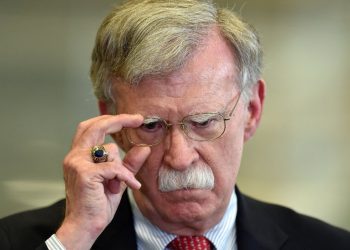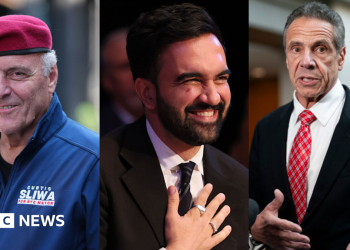U.S. President Donald Trump delivers remarks before signing an executive order to expand access to IVF at his Mar-a-Lago resort February 18, 2025 in Palm Beach, Florida.
Joe Raedle | Getty Images
President Donald Trump announced two new efforts Thursday to expand the availability of in vitro fertilization, his administration’s first concrete action on the costly and politically fraught procedure.
Trump reached an agreement with EMD Serono, a subsidiary of the German group Merck KGaA, to reduce the price of some of the company’s fertility drugs in exchange for relief from planned tariffs on pharmaceuticals imported into the United States, which Trump has not yet imposed.
The Trump administration will also issue guidance encouraging employers to offer fertility benefits directly to their employees, which would work similarly to vision or dental coverage. It will allow employers to offer additional coverage at a fixed cost to patients and employers. But it’s unclear how much this effort will increase coverage, because it doesn’t require employers to participate.
At a news conference Thursday, Trump said the measures would lead to “a lot more beautiful American children.”
“We will dramatically reduce the cost of IVF, treatment and many of the most common fertility drugs for millions of Americans,” Trump said. “Prices are dropping dramatically.”
EMD Serono, the world’s largest fertility drug maker, said it would sell its IVF therapies directly to patients and that people could buy the drugs on Trump’s direct-to-consumer shopping site, TrumpRx.gov. This site will launch in January 2026.
The drugs include Gonal-f, an essential drug used in the injection protocol required for egg stimulation.
The plan comes as Trump works to rein in the cost of prescription drugs in the United States, signing deals with Pfizer And AstraZeneca in recent weeks which aim to facilitate Americans’ access to certain medications.
Millions of babies have been born using IVF, which involves combining eggs and sperm in a laboratory to create an embryo for couples having difficulty conceiving. The decades-old procedure is an issue the president repeatedly pledged to address on the campaign trail, calling himself the “father of IVF” last fall.
The procedure is often not fully covered by insurance – if at all – and it can cost around $20,000 or more per cycle. Only a quarter of companies with more than 200 employees currently cover IVF. Some studies have shown that an IVF cycle in the United States costs 271% more than the average in 25 other countries.
Trump issued an executive order on IVF shortly after taking office, promising to reduce costs and make the procedure more accessible. But that order did not provide specific details, other than a promise to release a detailed report with recommendations on the issue by the end of May. This report has not been published.
The proceeding became a flashpoint in the national conflict over abortion and reproductive rights in early 2024, when the Alabama Supreme Court ruled that frozen embryos are children and those who destroy them can be held liable for wrongful death. In some cases, embryos may be rejected during IVF.
Trump quickly distanced himself from the decision last year, urging the Alabama legislature to protect access to IVF.
Americans generally support the procedure. An April 2024 Pew Research Center poll found that seven in ten American adults view access to IVF as a good thing, with slight differences across most demographic and partisan groups.









